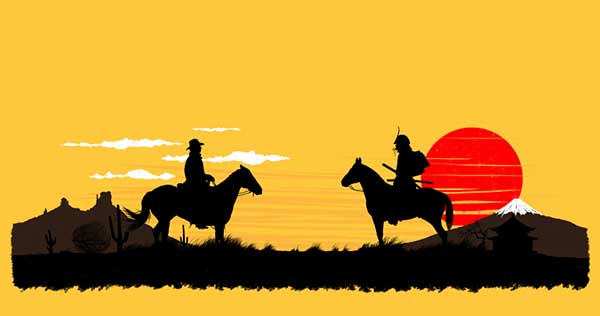No sooner had Russia disintegrated, different political philosophers started thinking of or presenting paradigms to analyze and project the international political affairs and definitely the Western philosopher Francis Fakuyama was earlier than expected, mostly because he was much inspired by the defeat of planned economic system by the free market economy with its democracy. I think his case was more emotional than rational and logical for he soon presented the “one world” paradigm as the ultimate destiny of “human planet” and ended history with the downfall of Russia and end of cold war and arranged the marriage of “modern democracy” with “free market economy” and thus projected a peaceful “world of harmony and euphoria” with no further wars and devastations. But facts and realities did not seem to agree his utopian concepts and his dream of “Euphoria” was shattered into as many pieces as it had to be shattered, like the end of cold war did not end in peace and harmony rather in different tassels effecting the international politics and he was left with a big exclamatory mark on his face, followed by a question mark!
After the failure of Francis Fakuyama’s theory and especially after the US war in Iraq and war against terrorism of in Afghanistan, another Western philosopher, Samuel P. Huntington’s paradigm of “Clash of Civilizations” to analyze and understand international political affairs of the globe became popular. Unlike, Francis, Samuel strived much to divide the world into nine major civilizations on the basis of their historic and cultural perspectives and he thought of the international political affairs to be taking place on the basis of differences among the same civilizations. He believed, “It is my hypothesis that the fundamental source of conflict in this new world will not be primarily ideological or primarily economic. The great divisions among humankind and the dominating source of conflict will be cultural. Nation-states will remain the most powerful actors in world affairs, but the principal conflicts of global politics will occur between nations and groups of different civilizations. The clash of civilizations will dominate global politics. The fault lines between civilizations will be the battle lines of the future.” So, he would call the attacks of America on Afghanistan and then on Iraq the ultimate result of the clash between two major civilizations of the human planet, i.e. Western and Islamic civilizations. He wouldn’t think them to be based on economic and political basis to a much extent, but on the contrary the political and economic influences cannot be overlooked and should never have been ignored.
It would be really helpful to mention Edward Said’s observations in The Myth of “Clash of Civilizations” as the basic questions on Samuel’s way of observations; “Is it wise to produce a simplified map of the world and then hand it go generals and civilian lawmakers as a prescription for first comprehending and then acting in the world? Doesn't this in effect prolong and deepen conflict? What does it do to minimize civilizational conflict? Do we want the clash of civilizations? Doesn't it mobilize nationalist passions and therefore nationalist murderousness? Shouldn't we be asking the question, why is one doing this sort of thing? To understand or to act? To mitigate or to aggravate the likelihood of conflict? I'd want to begin to survey the world situation by commenting on how prevalent it has become for people to speak now in the name of large, and in my opinion, undesirably vague and manipulable abstractions like 'the West' or 'Japanese culture' or 'Slavic culture' or 'Islam' or 'Confucianism'. Labels that collapse particular religions, races and ethnicities into ideologies that are considerably more unpleasant and provocative than Gabino and Renan did 150 years ago”.
Samuel P. Huntington’s analysis does not seem to be much concerned about the most relevant factors influencing the international affairs or maybe he, along with philosophers of his own school of thought, seemed to be more influenced by the saying that if a truth is told with a lower tone nobody hears but if a lie is told with ear-drums-reckoning tone then everybody hears. However, the political circumstances did not seem to be favoring them much and soon it was as flat as snowflakes on a heated surface that Western attacks on Afghanistan and Iraq had their economic and political aspects as well, which were very important.
Before declaring the Muslim world and European society as distinct civilizations we need to answer some very important questions; if we talk of Islamic world as ‘distinct civilization’ why did we find some Islamic states favoring American attacks on Iraq and Afghanistan? If we talk of Western countries as a ‘distinct civilization’ why did we find few of the Western countries going against the American attacks? If we talk of “Western people” as inhabitants of ‘distinct civilization’ why do we find most of them protesting against their own governments in the favor of their “foe civilizations”? These are the questions that the theory “Clash of Civilizations” did not answer sufficiently. We really need to understand that the political and economic interests stand as more important players in designing the world order or disorder in the world.
The foreign policies and the diplomatic relations pursued by different nations of the world in today’s socio-political scenario favor the political and economic interests of those nations not of others even if they are similar to them or they may have similar historical or cultural backgrounds. The cultural and historical identities become important when the nations are already stable and have acquired socio-political sustainability. Their relation is like that of roots and branches of a tree – the political and economic interests are the roots while the cultural backgrounds and historic civilizations are the branches; and it is the roots that decide how the tree is going to be and how the branches will grow; and whether the tree would have flowers and fruits or not.

